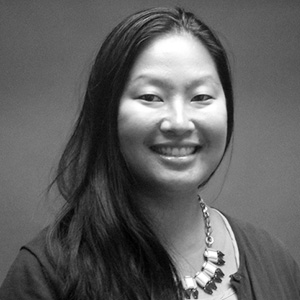
Alyson Heller, Editor, Simon and Schuster/Aladdin
1. What’s the best advice you can give to writers who are right now polishing their pitches, query letters and first 10 pages of their manuscripts in preparation for the upcoming SDSU Writers’ Conference?
Pitches: First, relax! I’d like to think we agents/editors are a very friendly, supportive bunch, and we want you to do well! We are eager to hear about the manuscript that you have worked so hard to polish for us. In terms of the pitch itself, try to hone what we like to call the “elevator” pitch—can you tell us the main hook of your story in one or two lines? Finally, write down a few key notes that you really want to mention, just in case the nerves creep in.
Query Letters: Similar to the pitch, there is no need to go into deep backstory or secondary characters. Try to give us the hook/conflict right off the bat, and how your book will fit in the marketplace with realistic comps. I would also love to hear a brief summary of any previous publishing you may have done, social media accounts, etc. And, while this may seem like nitpicking, make sure you have the correct spelling of the person you are querying, and correct publishing house/imprint or agent/agency!
First 10 Pages: As an editor, I have seen authors hone their first pages until we are ready to go print the book, so don’t be discouraged if they aren’t quite where you feel they should be! Again, similar in theme to the pitch and query, those first 10 pages should give the reader a sense of the main character, conflict and draw the reader in so they want to keep on going. And for both the query and first 10 pages, have someone proofread them, or at least run a spell-check!
2. Can you share one of the best and one of the worst opening lines from query letters you’ve received?
In general, the worst opening lines are when there are comparisons where “This is the Hunger Games meets Harry Potter” or something similar. While we would of course love to find that, this sets up incredibly high expectations and more often than not, the sample/ms that follows unfortunately does not meet those expectations.
The best opening lines for me are ones that introduce—or give a sense—of the main character. It gives me a personal connection that helps me start to care and invest in the story before I’ve even read it, rather than a generic “This book will be the next best-seller” (which I have received before) or the Hunger Games/Harry Potter comparison I mentioned above.
3. What’s the first book that spoke to you as a young reader?
I loved the Ramona books! I also remember reading James and the Giant Peach and Charlotte’s Web many, many times over. These books were like my comfort blankets, and I never got sick of reading them.
4. What do you hope to find at the 31st Annual SDSU Writers’ Conference?
Enthusiasm, open-minds and willingness to learn from one another. In terms of the “business-y” end of things, I acquire everything from (commercial) picture books through middle grade for Aladdin. I’ve had the pleasure of editing many debuts, and I would love to find some fresh new voices for our list, in particular for my middle-grade list.
For more information about the SDSU Writers’ Conference, visit neverstoplearning.net/writers